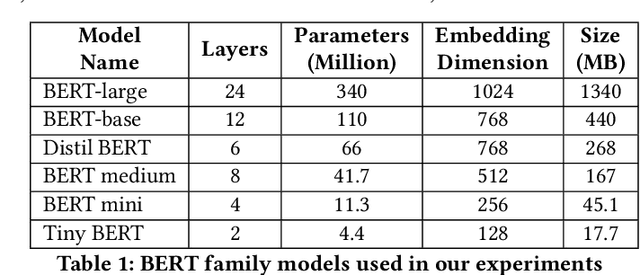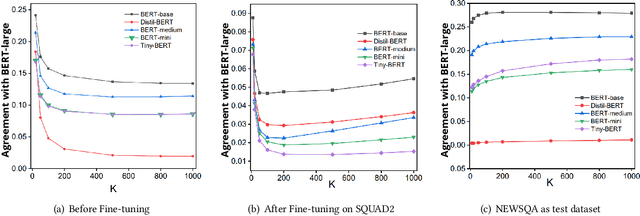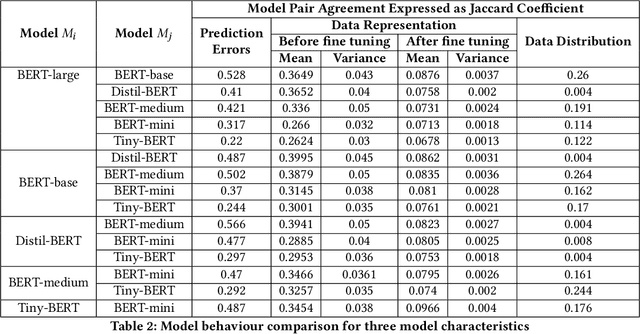Compressed models are NOT miniature versions of large models
Paper and Code
Jul 18, 2024



Large neural models are often compressed before deployment. Model compression is necessary for many practical reasons, such as inference latency, memory footprint, and energy consumption. Compressed models are assumed to be miniature versions of corresponding large neural models. However, we question this belief in our work. We compare compressed models with corresponding large neural models using four model characteristics: prediction errors, data representation, data distribution, and vulnerability to adversarial attack. We perform experiments using the BERT-large model and its five compressed versions. For all four model characteristics, compressed models significantly differ from the BERT-large model. Even among compressed models, they differ from each other on all four model characteristics. Apart from the expected loss in model performance, there are major side effects of using compressed models to replace large neural models.
 Add to Chrome
Add to Chrome Add to Firefox
Add to Firefox Add to Edge
Add to Edge